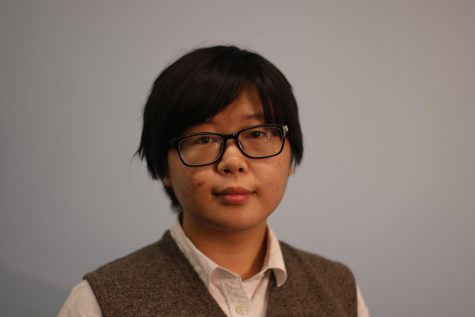Kim: Bite the bulletin, it’s two minutes to midnight
It is 11:58 p.m. and you have to submit an assignment by midnight. Only “you” is the human race, “midnight” is the annihilation of the human race and “assignment” encompasses all the reasonable actions we can do to prevent the apocalypse. Rather than a Humans vs. Zombies mission, this is the Doomsday Clock created by the Bulletin of the Atomic Scientists, and this is an analogy of how close we are to global disaster.
The Bulletin of the Atomic Scientists was formed by scientists who helped create the atomic weapons in the Manhattan Project. Every so often, they write up a statement explaining how close humankind is to “midnight” based on nuclear threats, climate change and dangerous technology, and update the Doomsday Clock accordingly. The purpose of the Doomsday Clock is to serve as a warning to governments and to people, which is why it does not tick down as you would expect a normal clock to do. Midnight is preventable. Originally set at seven minutes to midnight, the Bulletin moves the minute hand of the clock either closer to or further away from midnight based on their calculations. The furthest that the clock has been from midnight was 17 minutes in 1991, after the Cold War ended. The closest that the clock has been to midnight was two minutes in 1953 when the United States and Russia created and tested hydrogen bombs—and now, in 2018.
Why are we so close to wiping ourselves out? It would be all too easy to point fingers at the Trump administration, and some of the blame is justified. The Bulletin of the Atomic Scientists explicitly name President Donald Trump and his actions, particularly his communications with North Korea and how the American government backed out of the Paris Agreement. But there are other factors at hand, too—misinformation and “fake news” that prevents the public from being educated, another possible arms race with Russia, Pakistan and India increasing their stores of nuclear weapons and others.
In the Doomsday Clock statement, the Bulletin of the Atomic Scientists recommends that “US citizens should demand, in all legal ways, climate action from their government … Citizens should insist that their governments acknowledge [climate change] and act accordingly.” The Bulletin did not provide guidance on how citizens should try to prevent nuclear war. Elsewhere on its website, it recommends that readers educate themselves on relevant subjects and then contact their respective governments. This is well and good, and can easily be done using tools like Democracy.io, but this advice also implies that the common person cannot do anything other than speak. Communication, though useful, does not directly change the world.
It is 11:58 p.m. The deadline approaches. It’s time to be creative and come up with solutions.
Won Hee Kim is a second-year English major. She knows procrastination like an old friend, but tries to act on the important things in life.

Won Hee Kim is a human being who is eager to escape from a fourth-year of higher education into a cold, corporate world. Case Western Reserve University...


